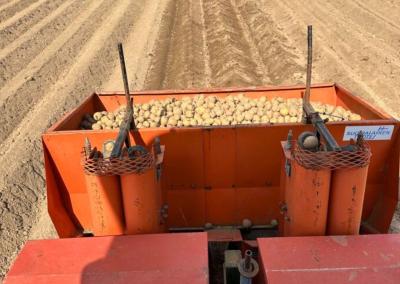I. Hofman says the exact frost damage will be known at the end of this month
Agriculture Minister Ignas Hofmanas says there is still not enough data to properly assess the damage caused to farmers by frost. According to the minister, all the statistics from the municipalities should be collected by the end of this month, and then it will be possible to talk about specific compensation.
„We hope to have all the figures at the end of June“, – I. Hofmanas told reporters on Tuesday.
„The commissions set up in the municipalities have to assess the damage. Farmers have to come forward and have their damages assessed. When we get the data, we will see the extent of the problem and then we will talk about further action," the cabinet member asserted.
According to the Ministry of Agriculture (MAA), affected farmers, gardeners and berry growers have until 10 June to submit information on the losses they have suffered.
According to Mr Hofmann, the specific amounts of European aid are not yet known, which means that questions on compensation are premature.
„We don't know what figures we are talking about yet, so we are waiting for answers from the municipalities. It is true that the European Commission has been contacted, is being worked on and processes are under way. It's just that perhaps they are not happening as quickly as everyone would like," said the head of the Ministry of Agriculture.
ELTA recalls that the Government decided last week to declare a state of emergency due to the spring frosts, which have severely affected berry and early vegetable crops.
According to preliminary estimates by the Ministry of Agriculture and local municipalities, up to 50-90% of the harvest has been destroyed in some regions, depending on the crop, and up to 100% of the fruit and berry harvest in some areas.
After a record warm second decade of April, when the average air temperature in Lithuania was 12.4 °C, a positive anomaly of 5.7 °C (the record high temperature of 29.1 °C was recorded on 18 April. In western Lithuania), the active growing season started almost 2 weeks earlier than normal in almost all parts of the country.
However, in the last week of April, temperatures plummeted and since then the country has experienced severe and prolonged frosts, which have now lasted for more than five weeks. These adverse weather conditions have caused severe damage to gardens and orchards, many of which have already flowered and, in some places, produced early fruit.













































































































